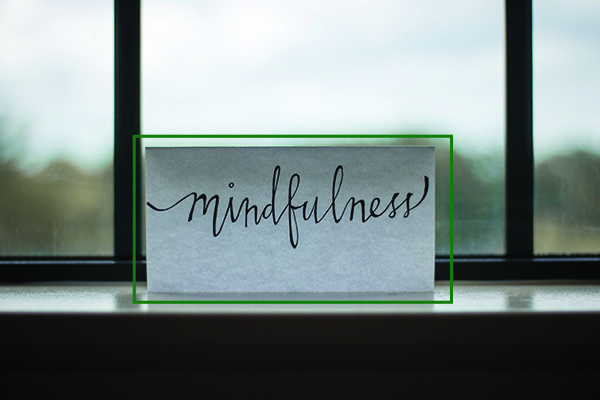
Overwhelmed. Anxious. Distracted. Lonely. These are a few words that might describe the feelings of those who are transitioning into different working arrangements, or limited work, during the novel coronavirus (COVID-19) outbreak.
News cycles are dominated by COVID-19 news. While coverage is a pertinent necessity during a pandemic, it can be overwhelming to experience every news outlet abandon their daily beat for serious COVID-19 news only. There is little to no positive news– currently, most pieces of communication are tracking ever-increasing infection and fatality numbers. Sitting on the receiving end of virtually every possible news outlet pushing COVID-19-centric news leads to feeling distracted and overwhelmed. Daily work seemingly hails in comparison to the massive and ongoing stretches of the COVID-19 outbreak.
Ready to focus, experience mindfulness and boost your mood? We’ve got your go-to guide for seven things that can improve your mental health. From free resources to tips to self-help platforms, take charge of your mental health.
1. Help someone else
Helping someone else is a great way to feel more empowered about the impact of your day-to-day life. Psychology Today columnist Eva Ritvo, M.D. reports that helping others can help release the happiness trifecta: dopamine, serotonin, and oxytocin, which causes a boost in mood and several other health benefits. Here are just a few ideas:
- Support your community by ordering take-out options or shopping online. Restaurants and small businesses are really struggling during this time.
- If you see another co-worker or community member struggling, virtually reach out to support and encourage them.
- Virtually check on any elderly or vulnerable members of your community.
- Send virtual encouraging notes to those who are important to you. Practice gratitude by showing them how thankful you are for them.
2. Practice mindfulness
Combat the pinging notifications and things vying for your attention by practicing a bit of mindfulness at the start or end of your day– or even as a lunch time break. According to a Harvard Health article, “practicing mindfulness can bring improvements in both physical and psychological symptoms as well as positive changes in health, attitudes, and behaviors.”
- Check out this mindfulness platform, Headspace, that is offering free meditation practices for providers (physicians and APPs) with an NPI. They also have other free services available.
- The Resilient Option is offering free unlimited access to their online program. You can access it here. Please use Resilience100 as the coupon code at the checkout. In addition, Resilient will be hosting a one-hour video webinar every week for the next several weeks.
3. Read a positive book
Whether you choose to read a positive book, a murder mystery or even a manual, reading still has proven health benefits. According to Scholastic, regular reading can decrease your stress levels by up 68 percent and can lengthen your life by up to two years.
- Al.com has created a list of “31 optimistic books for readers in need of a boost right now.” You can read the full list here.
4. Watch a positive movie
Birgit Wolz, PhD., MFT, a psychotherapist at the Zur Institute, facilitates cinema therapy groups. Wolz stated that watching a movie can bring “insight, inspiration, emotional release or relief and natural change.”
- Al.com has created a list of “51 hopeful movies that will make you feel good about life, now streaming on Netflix and more.” You can read the full list here.
5. Limit your sources of news
Especially if you are already feeling overwhelmed, it is good to streamline your incoming news by picking three sites that you will get information from. Unfortunately, social media seems to be acting as an additional news site, so it might be helpful to consider social media when you are thinking through your daily input sources. Also, work emails pertaining to COVID-19 count as a source of news input. Consider a robust news source as you think through your current input list and choose only three that you will tune into:
- Reading work emails and communication
- Listening to NPR news
- Watching CNN, FOX or NBC news
- Watching local nightly news
- Reading NPR news site
- Reading your Facebook news feed
- Reading your Twitter news feed
- Reading local news sites
- Receiving news alerts on your phone
6. Get moving and get outside
Restaurants, movie theatres and everything else might be closed, but parks and trails are not! According to the Mayo Clinic, there are several benefits to staying active, including boosted energy and improved mood. Getting moving is a good way to get your mind off of the negative and remember the hope that is just around the corner! Below are a few ideas for staying active during the COVID-19 outbreak.
- Visit your local park
- Go on a bike ride
- Arrange a family walk
- Play a game that gets you moving
- Go for a jog
- Make chalk drawings in your driveway
- Mow your grass
7. Start (or end) your day with gratitude
Taking a moment to remember all of the things that you are grateful for in life can be a great way to focus on the positive. To take stock of the ways in which you count yourself lucky or blessed allows you to re-center on your priorities. It is also good for you! According to Harvard Health, giving thanks can make you happier. Plus, your gratitude can be as small- like a pair of clean socks- or large as you want it to be.
- Make a list of the things you are grateful for in the morning or evening
- Keep a gratitude journal
- Send your gratitude to loved ones
- Write virtual thank-you notes